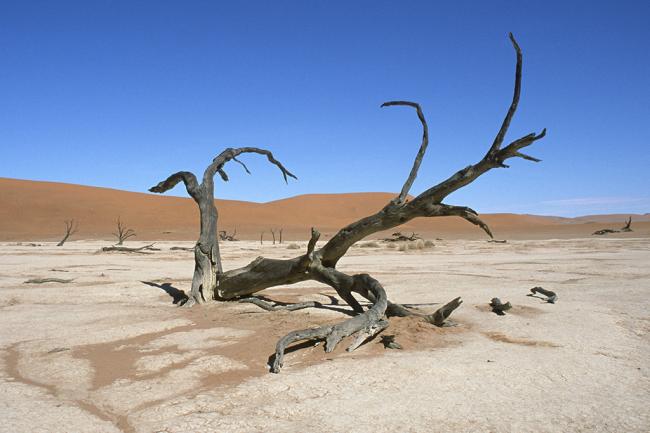
2016 was the hottest year ever recorded – UN weather agency
The globally averaged temperature in 2016 was about 1.1 degree Celsius higher than the pre-industrial period, according to a consolidated analysis by the World Meteorological Organization (WMO), continuing the trend in which 16 of the 17 hottest years on record will have been during this century (1998 is the outlier).
“2016 was an extreme year for the global climate and stands out as the hottest year on record,” said WMO Secretary-General Petteri Taalas, stressing that “temperatures only tell part of the story.”
In a news release, he emphasises that “long-term indicators of human-caused climate change reached new heights in 2016, as carbon dioxide and methane concentrations surged to new records,” adding that carbon dioxide, as well as methane concentrations contribute to climate change.
Carbon dioxide remains in the atmosphere for thousands of years, trapping heat and causing the earth to warm further. The lifespan of carbon dioxide in the oceans is even longer. It is also the single most important greenhouse gas emitted by human activities. According to the WMO, carbon dioxide is responsible for 85 per cent of the warming effect on the Earth’s climate over the past decade.
Rising sea levels as Greenland glacier melts
Rising temperatures and concentrations of major greenhouse gases in the atmosphere are not the only record-breaking indicators of climate change, also Arctic sea ice remains at very low levels.
“We have also broken sea ice minimum records in the Arctic and Antarctic,” Taalas noted. “Greenland glacier melt – one of the contributors to sea level rise – started early and fast. Arctic sea ice was the lowest on record both at the start of the melt season in March and at the height of the normal refreezing period in October and November,” he explained.
Based on WMO consolidated analyses Taalas also concludes that the “Arctic is warming twice as fast the global average,” and adds “the persistent loss of sea ice is driving weather, climate and ocean circulation patterns in other parts of the world.”
Extreme weather causing huge socio-economic disruption and losses
Throughout 2016, there were many extreme weather events which caused huge socio-economic disruption and losses.
“The one degree change means that the amount of disasters related to weather and hydrology have been increasing,” said Mr Taalas recently in an interview with UN News, adding that “it will have a negative impact on the economies of the countries, and it will also impact the lives and wellbeing of all humans.”
WMO has linked weather-related events to conclusions by the International Organization for Migration (IOM) and the Office of the UN High Commissioner for Refugees (UNHCR), which recently reported 19.2 million new displacements due to weather, water, climate and geophysical hazards in 113 countries in 2015. That number is more than twice the number of people displaced due to human-related conflict and violence.
Record ocean heat contributed to widespread coral reef bleaching, including in the Great Barrier Reef, which has seen up to 50 per cent of its coral die in certain parts.
Photo: World Bank/ Philip Schuler
Source: www.justearthnews.com
Support Our Journalism
We cannot do without you.. your contribution supports unbiased journalism
IBNS is not driven by any ism- not wokeism, not racism, not skewed secularism, not hyper right-wing or left liberal ideals, nor by any hardline religious beliefs or hyper nationalism. We want to serve you good old objective news, as they are. We do not judge or preach. We let people decide for themselves. We only try to present factual and well-sourced news.







